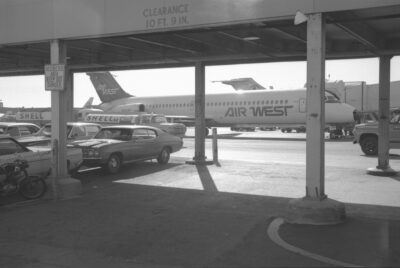We went to see “A Home at the End of the World“ last night at the Michigan. The screening was introduced by Tom Hulce, best known for his performance 20 years ago in Milos Forman’s “Amadeus.” The movie wasn’t all that great; it was brief, the ending was very abrupt, and probably the only really two fantastic things about the movie were its soundtrack and the brief clip from “All about Eve” that flashed on the screen. What was interesting, though, was Hulce’s introduction before the flick started.
He rambled a bit, and seemed oddly at a loss for words at one point, but he clearly perceived the movie as a vision of what it was like to live in the Midwest during the 1960s and 1970s (and that first third of the film was actually pretty good), and he launched into a bunch of fond reminiscences about strolling down State and Liberty and across the Diag with friends as an undergraduate at UM in the summer of 1969. What made the evident warmth of Hulce’s memory all the more intriguing was that the summer of 1969 was not exactly the most peaceful time in Ann Arbor, with South University being taken over for three days that June by student protesters and rioters and other pitched battles going on all summer long between various protesters and the University administration.
A lot of the audience (it was sparse; it could not even be described as a crowd), composed mostly of folks our age or older, loved Hulce doing this—a lot of them appeared to relate intensely to what he was talking about, to the memory of Ann Arbor as something other than what it apparently is now. That fascinated me. All places change, of course, and change is only accelerated as we move deeper into a time where nothing is stable anymore. But I’m always engrossed with the specifics: why is Ann Arbor so different now from what it was, say, 20 or 30 years ago? I can take stabs at guessing the reasons, one of them being, I suppose, that there seems to be very little (in terms of establishments or cultural landmarks) in town left that was around 10 years ago, let alone 20 or 30. The nostalgia and reverie of Hulce and the audience was way more complicated than the usual “Those were good times” scenario.
I could be totally off base on that perception, but it seems to me that history gets erased here much more assiduously than it does in other cities in the Midwest. (Unless it’s the history of UM, which gets guarded and preserved fairly zealously.) Why that is, I couldn’t hazard a guess. I don’t think it’s just a function of the generic “college town” explanation.



